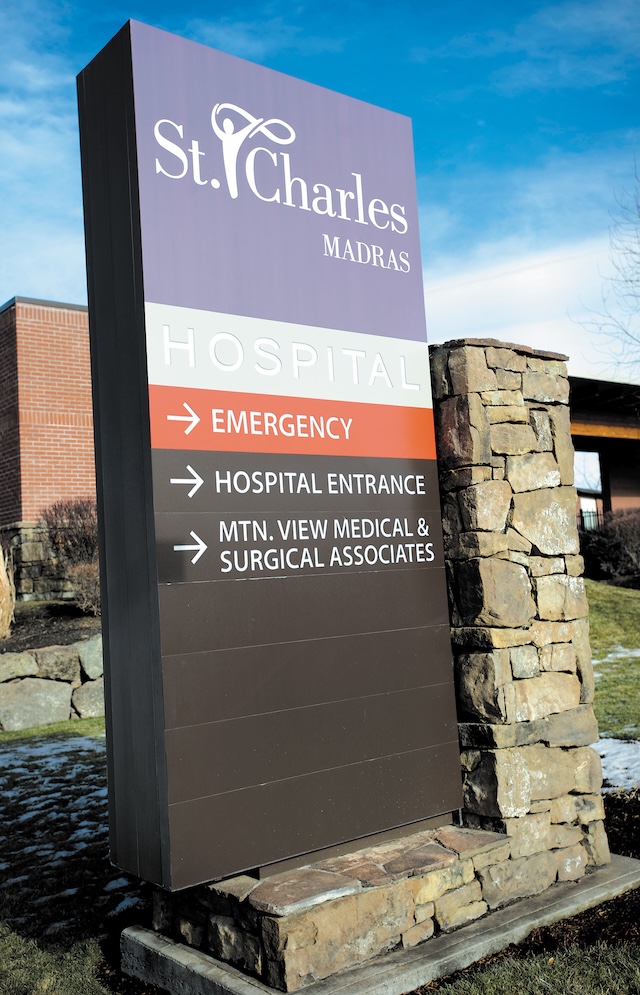Bend physical therapist highlights the importance of fitness for golfers
Published 10:14 am Monday, June 3, 2024

- Physical therapist Chris Cooper demonstrates a half-kneeling mid-back rotation at the Athletic Club of Bend.
Time spent at any one of Central Oregon’s golf courses will reveal some conversations that take on similar themes. Reflections on the day’s round, who’s hot and who’s not on the world’s major tours, and all too many exchanges about physical ailments.
It’s the latter that all golfers experience at some time or another. Whether it be a sore back, bad wrist or tweaked elbow, injuries commonly prevent golfers from playing up to their potential, and sometimes altogether.
Trending
There’s a reason Therapeutic Associates’ physical therapist, Chris Cooper, stays so busy. As active as the Central Oregon golf community is, Cooper’s work is in high demand.
Cooper has been a physical therapist for nearly 25 years. He graduated with a Master of Science in Physical Therapy in 2009 and a Doctorate in Physical Therapy in 2010 from the University of Montana.
Upon graduation, he moved to Bend and has been practicing with Therapeutic Associates ever since. Over the years, he’s worked individually with several local clubs, including Awbrey Glen, Pronghorn, Brasada, Tetherow, Bend Golf Club, and Broken Top.
Cooper says his work “focuses on the body-swing connection. Understanding how physical limitations affect the golf swing, and understanding what your instructor is trying to get you to do are vital to not only recovery from injury, but heightened performance as well.”
He insists that understanding the role fitness plays in golf is a must.
“Although the golf swing is less than two seconds, a lot of physical things have to occur in a proper sequence in order to optimize distance and consistency,” Cooper says.
Trending
Cooper’s teachings revolve around what he calls “the four pillars of golf strength”: push, pull, diagonal chopping, and vertical thrust. Furthermore, each pillar requires specific exercises. Whether it be injury recovery or routine fitness, Cooper’s treatments focus on these pillars within the framework of mobility and speed.
While recovery and rehabilitation comprise a lot of Cooper’s work, he says there is a lot golfers can do to prevent injury in the first place.
“The number one injury I see is with the lower back,” Cooper says. “The three most stressful movements for the back are bending, lifting, and twisting — golf checks two of those boxes.”
Golfers can best avoid lower back injuries by making sure their hips and middle back are rotationally flexible, and ensuring their core (glutes and abs) is strong. If he had to pick one however, Cooper stresses that mobility should be where golfers focus most of their fitness efforts.
Other common golf injuries include those to the elbows, shoulders, and wrists. Cooper cites inadequate forearm strength, limited shoulder mobility, and inability to properly transfer weight during the swing as the root causes of these injuries.
Injury prevention requires consistent wrist, elbow, and forearm stretching, as well as loading and strengthening exercises.
While most golfers could do a better job with their golf-specific fitness, Cooper suggests that pre-round warmup and post-round cooldown are vitally important but too often are overlooked. Prior to the round, he suggests a routine of golf-like movements and avoiding holding stretches for a prolonged period of time. He says that “a pre-round warmup isn’t the time to make flexibility gains.” Staying hydrated and repeating warm up exercises throughout the round is also important for staying limber.
After the round, a cooldown routine is equally important, especially for older golfers and those nursing an injury. Keys to a post-round cooldown are the use of a foam roller and prolonged, static stretches.
For those interested in improving their golf performance and overall well-being, Cooper offers a variety of training and treatment options at the Therapeutic Associates, Athletic Club of Bend location. Most plans include a Titleist Performance Institute assessment to identify limitations or deficiencies in strength, mobility, balance, and power. From there, Cooper works with clients to customize an exercise plan. If a golfer is working with a teaching professional, Cooper also communicates with them to understand the student’s individual goals and incorporates them into the exercise regimen.
In addition to individual work, Cooper offers weekly classes of four to six people, and works in conjunction with Golf Digest Top 100 teacher, Jeff Ritter, at Pronghorn. To inquire about working with Cooper, golfers can call Therapeutic Associates at 541-382-7890.
As the weather warms and the days continue to get longer, golfers are gearing up for another exciting golf season in Central Oregon. While he knows he will be busy treating plenty of golf-related injuries in the months to come, Cooper hopes golfers will take their fitness as seriously as they do their time on the course. If they do, they’ll not only play better and shoot lower scores, they’ll feel a whole lot better too.








